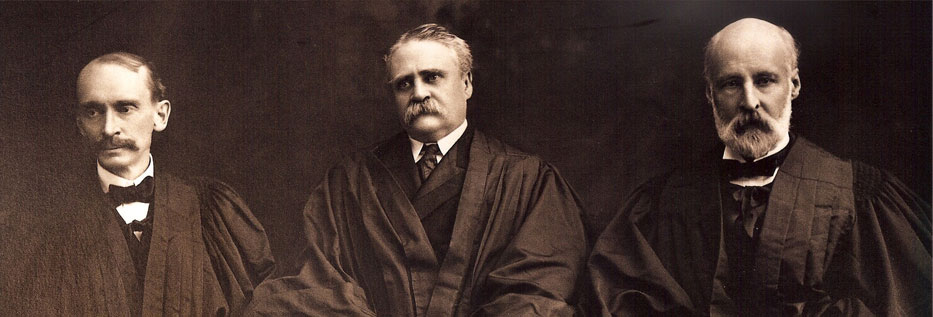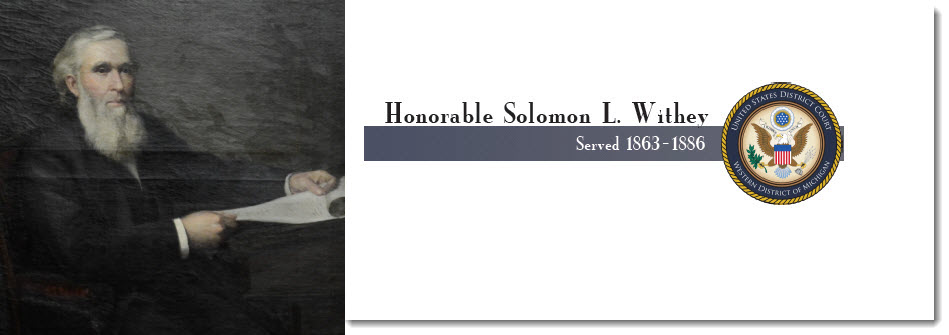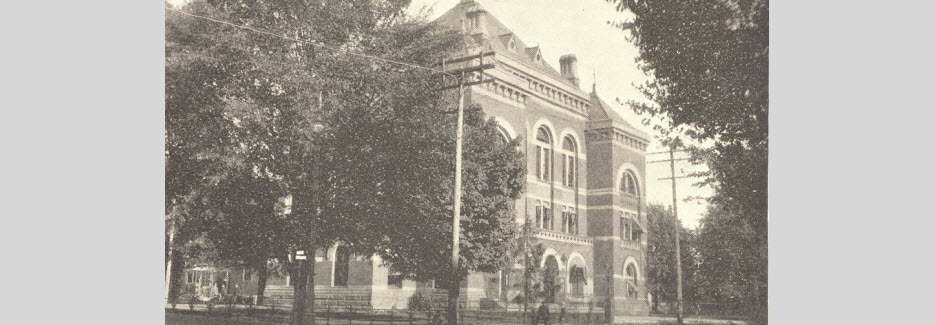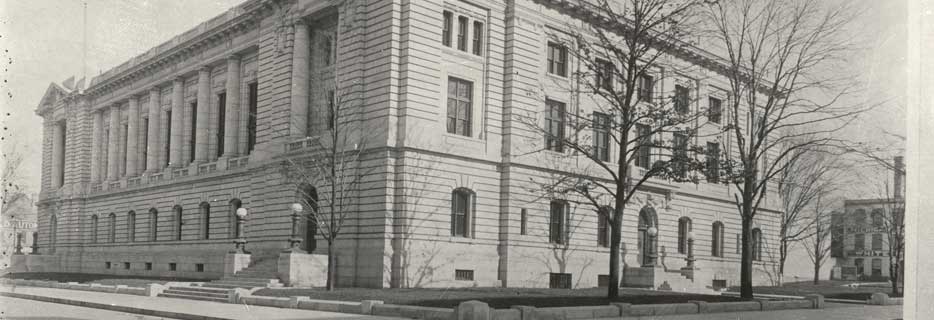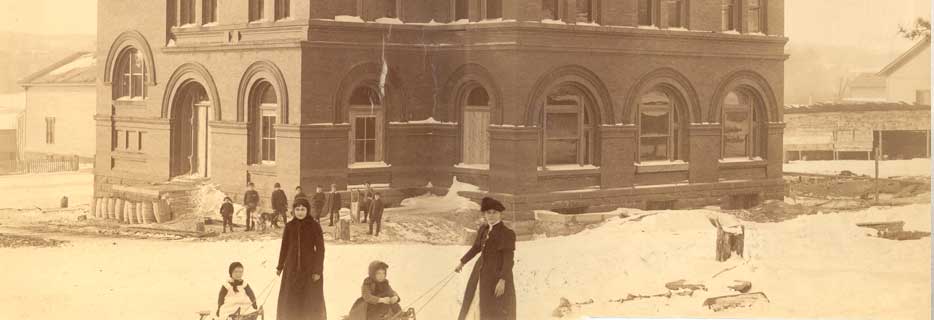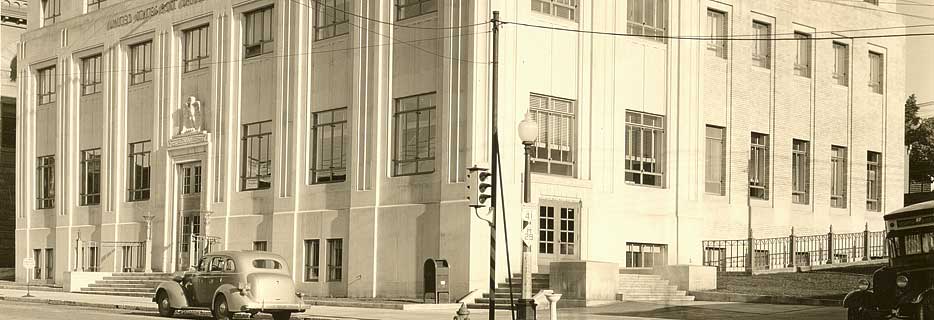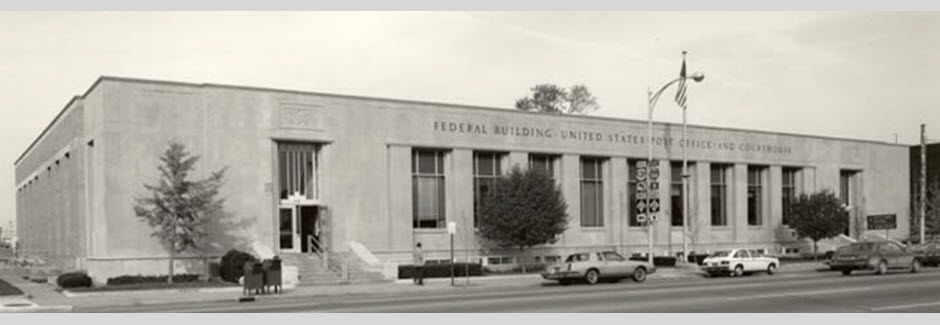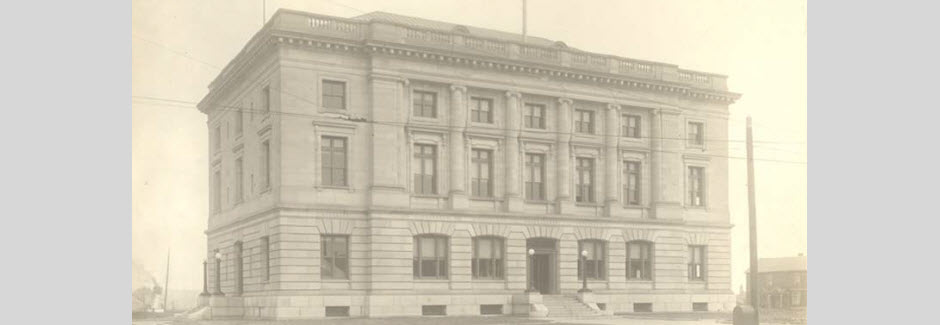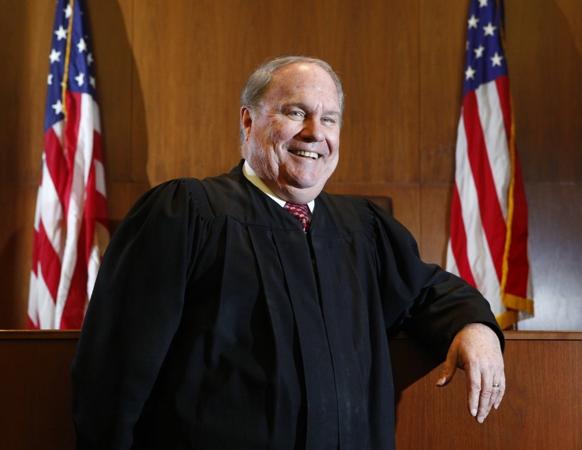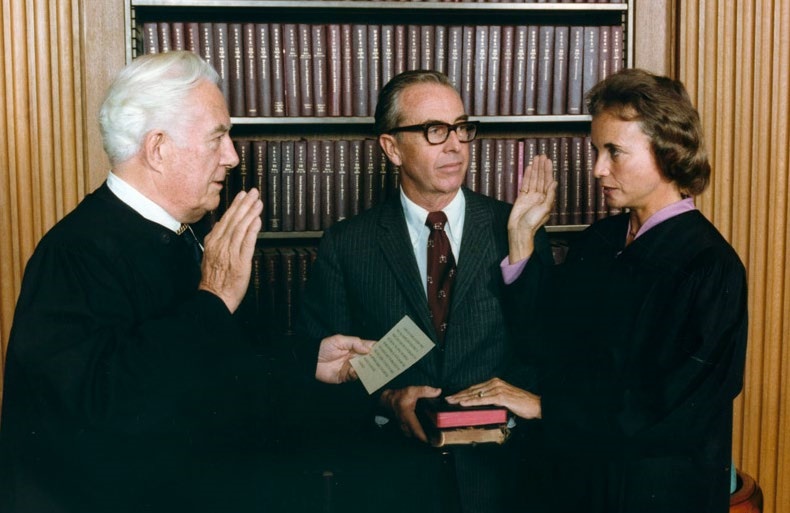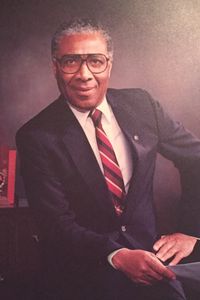Hon. Henry F. Severens (right) with fellow 6th Circuit Justices Day and Lurton
Solomon L. Withey - First District Court Judge
U.S. Courthouse, Grand Rapids, Michigan - 1879
U.S. Courthouse, Grand Rapids, Michigan - 1911
U.S. Courthouse, Marquette, Michigan - 1889
U.S. Courthouse, Marquette, Michigan - 1937
U.S. Courthouse, Kalamazoo, Michigan - 1939
U.S. Courthouse, Sault Sainte Marie, Michigan - 1910
Welcome to the Historical Society for the United States District Court for the Western District of Michigan.
Founded in 2002 with the support of the Western Michigan Chapter of the Federal Bar Association, the Historical Society is a free-standing 501(c)(3) organization incorporated under the laws of the State of Michigan, answering to an independent Board of Trustees.
Mission
The Historical Society was created to research, collect, and preserve the history of the lawyers, judges, and cases that have comprised the federal court community in Western Michigan and the Upper Peninsula, and to share this information with the public in an effort to promote a better understanding of the region, the court, and the rule of law.
Oral History Project
To capture tomorrow's history today, the Society is professionally video-recording the recollections of today's judges about their time on the Court. These interviews will be up-dated periodically. In a parallel program, the Society is also interviewing Court staff, as well as attorneys who have been active in federal court.
Publications
The Stereoscope---Journal of the Historical Society---is published seasonally by the Society, recounting the proceedings of the Society, and often features in-depth articles about the Court's colorful past. Persons interested in submitting articles are invited to contact David L. Gass, (616) 831-1717. The Society has also produced a thirty-minute video on the history of the federal court in Western Michigan, entitled Equal and Exact Justice for All. This video is also available on DVD.
Archives
The Society maintains a computerized archival Register for its oral history project and for its collections of judges' papers, photographs, documentary materials, and other memorabilia involving the Court and its people. Audio and visual recordings obtained by the Society are normally transferred to a digital format for preservation purposes. The Society also keeps an Index of collections at other institutions where information may be obtained about the federal court in Western Michigan.

The Historical Society proudly presents:
A Lincoln Legacy: The History of the U.S. District Court for the Western District of Michigan
by David Gardner Chardavoyne with Hugh W. Brenneman, Jr.
A Lincoln Legacy provides the first and only comprehensive examination of the history of the federal courts of Western Michigan. It will appeal to those learning and practicing law, as well as those with an interest in Michigan history.

